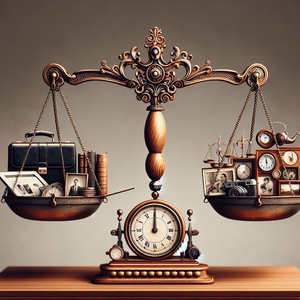Unearthing the Lost Cities of Cyberspace

Digital archaeologists approach their mission with the same dedication and meticulousness as their counterparts in traditional archaeology. Their work involves excavating the digital debris left by websites and platforms that have ceased to exist, aiming to preserve the essence of these virtual communities. This process often involves sifting through archives, using specialized tools to recover data, and meticulously documenting their findings. Iconic digital relics like GeoCities and MySpace provide a window into the technological zeitgeist of their time, revealing how online interactions and digital cultures have evolved over the years. For instance, GeoCities, once a bustling hub of user-generated content, offers a glimpse into the early days of web design and community building. Each "neighborhood" in GeoCities was dedicated to specific themes, mirroring the diverse interests of its users. Similarly, MySpace, a pioneer of social networking, revolutionized how people connected online, laying the groundwork for future platforms like Facebook and Instagram. By examining these digital artifacts, archaeologists can trace the evolution of online communities and the technological advancements that facilitated their growth.
Methods of Recovery and Preservation
The art of digital archaeology involves a variety of techniques to recover and preserve data. One common method is the use of web crawlers and archival tools such as the Wayback Machine, which captures snapshots of websites at different points in time. These tools allow digital archaeologists to reconstruct websites, even when the original servers are long gone. For example, the Wayback Machine has archived billions of web pages, providing researchers with access to historical content that would otherwise be lost. Additionally, data extraction techniques are employed to recover information from obsolete formats, ensuring that no digital artifact is left behind. This might involve translating old file formats into contemporary ones or using software emulation to run outdated programs. Another crucial aspect of digital archaeology is collaboration with institutions and organizations dedicated to preserving internet history. Partnerships with libraries, museums, and academic institutions provide the necessary resources and expertise to ensure that these digital artifacts remain accessible to future generations.
Cultural Significance of Digital Spaces
The cultural significance of preserving digital spaces cannot be overstated. These virtual ghost towns reflect the social dynamics, technological advancements, and creative expressions of their era. For instance, platforms like Friendster and early blogging sites reveal the nascent stages of social networking, highlighting how online communities formed and evolved. Friendster, one of the first social networking sites, offered users a novel way to connect and share interests, paving the way for the social media platforms we use today. Defunct websites dedicated to niche interests provide insights into the diverse subcultures that thrived in the digital realm. From forums dedicated to early gaming communities to fan sites celebrating niche television shows, these spaces fostered unique cultural exchanges and creative collaborations. Moreover, preserving these digital artifacts serves as a reminder of the impermanence of the internet. As technology advances, the risk of losing valuable digital heritage increases, making the work of digital archaeologists all the more critical. By studying these lost cities of cyberspace, we gain a deeper understanding of the internet's impact on society and the ways in which it has shaped contemporary digital culture.
In an age where digital innovation is relentless, the work of digital archaeologists stands as a testament to the importance of preserving our virtual past. Unearthing the lost cities of cyberspace not only enriches our understanding of the internet's history but also ensures that future generations can learn from and appreciate the digital landscapes that preceded them. As we continue to build and explore new digital frontiers, let us not forget the value of the virtual ruins we leave behind—remnants that tell the story of an ever-evolving digital civilization. By preserving these digital artifacts, we honor the creativity, innovation, and community spirit that have defined the internet since its inception.
Digital Preservation Specialist
Libraries, museums, universities, and archival institutions
Core Responsibilities
Develop and implement strategies for the long-term preservation of digital artifacts and data.
Collaborate with institutions to ensure digital collections are accessible and sustainable.
Required Skills
Proficiency in digital preservation tools and methodologies.
Experience with metadata standards and digital asset management.
Unique Qualifications
Understanding of legal and ethical issues related to digital preservation.
Web Archivist
National archives, digital libraries, research organizations
Core Responsibilities
Utilize web crawlers and archival tools to capture and preserve snapshots of websites.
Document and catalog digital collections for research and public access.
Required Skills
Familiarity with tools like the Wayback Machine and Archive-It.
Ability to analyze and interpret digital data structures.
Unique Qualifications
Strong analytical skills and attention to digital detail.
Data Recovery Specialist
IT service companies, digital forensics firms, archival services
Core Responsibilities
Recover and restore data from obsolete or damaged digital formats.
Convert legacy data into accessible, modern formats for preservation.
Required Skills
Expertise in data recovery techniques and software emulation.
Knowledge of various file systems and data storage technologies.
Unique Qualifications
Problem-solving skills with a focus on digital reconstruction.
Digital Cultural Historian
Academic institutions, think tanks, cultural heritage organizations
Core Responsibilities
Analyze the cultural and social impact of historical digital platforms.
Produce research and publications on the evolution of digital communities.
Required Skills
Strong background in digital history and cultural studies.
Ability to synthesize complex digital trends and historical data.
Unique Qualifications
Experience in ethnographic research within digital contexts.
Information Systems Archivist
Corporate archives, government agencies, nonprofit organizations
Core Responsibilities
Manage and preserve archival systems for digital records and databases.
Implement best practices for the storage and accessibility of digital information.
Required Skills
Expertise in archival systems and information lifecycle management.
Strong technical skills in database management and digital curation.
Unique Qualifications
Certification in records management or archival science.


